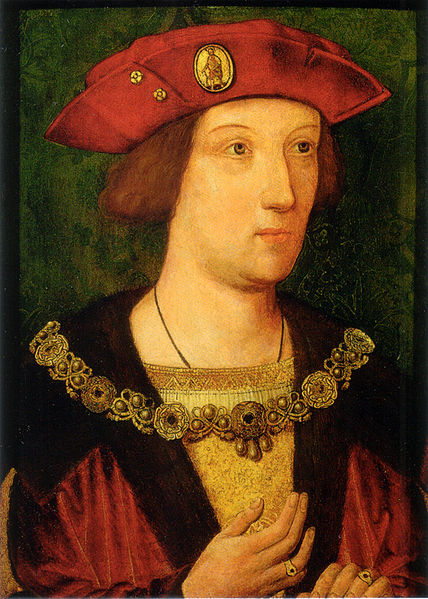THE AUTOBIOGRAPHY OF
ARTHUR,
KING OF ENGLAND
(1509-1549)

PROLOGUE
∫ From Henry Radclyffe, Earl of Sussex
10 October 1556, England
My dearest sister Frances,
I am about to die and, as such, I am glad to be consoled by being yet able to lift this pen. We have not seen each other in many years and I am uncertain of the visage I might now behold should I see you, being more than aware of the changes which afflict me in my sinful vanity. It is my hope that time has been less unsavoury and strange with thy features than with my own.
I currently live quietly in the countryside now, but am aware of the dangers faced in the city by those of thy religious persuasion. I have been near enough at hand to watch the many pieties and wild ideas of some at the Court and it is my sincerest hope that thy husband shall be spared from any martyrdom on their accounts. It is with heresies such as these that we all miss the steady hand of More.
I came here before the new King Arthur’s coronation; despite my friendship with his father, I felt no place in the Court following his death. You would not recall, Frances, the summer that we have with the King. It was such a wonderful ride up to the hunting lodge. It was there I discovered a thing of your father’s, a thing which I must now entrust to you.
Make haste to inform me of the manner by which it may be discreetly given to your person, lest my celestial interview be hastened by our capricious Maker.
Ever yours, Henry
∫ From Frances Radclyffe
11 November 1556, England
My brother Henry,
I beg your patience in taking such a length to place this reply into your hands. The servants of the King can create difficulties for those in receipt of any correspondence or carrier they distrust.
I am distressed to hear of your health, and pray that you are given to repentance in your private devotions for the betterment of the shape and disposition of your eternal soul. We remain comfortable and rich, despite the affront to God from those who tempt his judgment, and we pray daily for the lifting of the spiritual bondage of all those who live under tyranny.
I am curious of this “thing”. Our father has now been dead these fifteen years and you have only now mention a legacy. And yes, I do remember the summer with the late King. He was certainly beautiful, with a presence of majesty.
I have some sad news to share regarding Father Thomas. I am sure that he has obtained his crown in Heaven with your friend, More. Their deaths have diminished our ranks, but our ideas will be proven true in time and we shall prevail against the ranks persecuting the true faith.
I have arranged for the one who brings you this message to establish the means by which we may exchange the valuable legacy. Your servant in the name of our Saviour,
Frances
∫ From Henry Radclyffe, Earl of Sussex
1 December 1556, England
My dearest sister Frances
Thy prayers may have had some effect, enabling me to hope that my meeting with Death may yet be scheduled to a more convenient time. As you know, I shun the services of all priests, those who bleed along with those who meddle, and I care not what vestment they wear. I hope not to offend thee, Frances, but my hopes in Masses and pilgrimages, Bibles and sermons, and Gods created in the image of man have faded. Perhaps there is one who waits for me on the other side; I know not.
Frances, do not attempt to send me the Scriptures mentioned by your servant. I have already read such in the service of the King after the death of good Queen Catherine. I remain unconverted to any faith, old or new.
I have spoken to your servant regarding transportation of the legacy. It is a journal written by your father. It is extremely valuable and many people would like to destroy it. They know of its existence, but have come to believe that it is in the possession of Norfolk. However, I fear that, sooner or later, they will find their way to here.
There is one last thing of which I must tell you and it is a hard thing. This journal is not written by the man you call “our father”. It is written by your true father: King Arthur. I speak truth to you, who remains my dear sister, not an abomination of insults on our common mother. We have always defended the low-minded accusations from outsiders, but we must now be truthful with each other.
You may have many questions but I trust that this journal will rest safe in your hands. It was my father who bound me to this service. Our fathers were as brothers, growing old together, and when King Arthur lay dying alone in that stuffy Whitehall chamber, it was I who was there. Many of us knew of the king’s journal; I had heard rumour of it since I was became an adult in Court. Toward the end, he was still making notes, hoping to expand on them later. He never did or will.
I enclose the notes here, along with the rest, with my own notes and explanations. I thought to destroy it after I stole it from his chambers, but I made the grave mistake of opening its pages and hearing your father’s voice once more. This is his most private earthly remain. I beg of you to be a good daughter and maintain it for him until its path becomes clear. Ever yours,
Henry
Last edited: